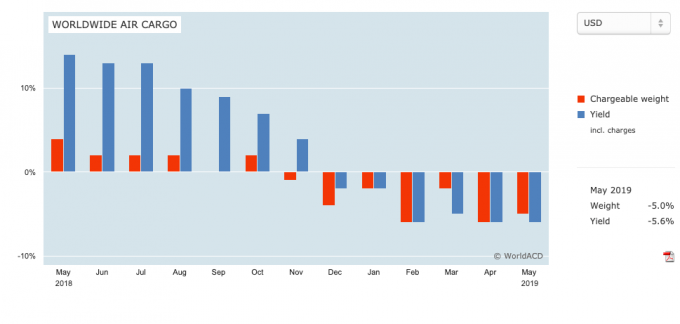Airfreight demand expected to weaken through Q2
Weak ecommerce demand has seen cancellations of airline block space agreements and charters, particularly to the ...

“The air freight market is really screwed,” one forwarder told The Loadstar this morning.
Carriers – even those with higher rates that typically don’t chase traffic – are begging for volumes at below-market rates, he said.
One air freight statistician noted that, on a weekly basis, the market is “extremely volatile”, in particular over the north Atlantic, with volumes contracting significantly over the past month.
But some weeks have seen double-digit percentage growth over the previous week, only to lose those volumes the following ...
Maersk u-turn as port congestion increases across Northern Europe
Apple logistics chief Gal Dayan quits to join forwarding group
Maersk Air Cargo sees volumes fall as it aims for 'margin in favour of revenue'
Airlines slash freighter capacity post-de minimis, but 'the worst is yet to come'
Houthis tell Trump they will end attacks on Red Sea shipping
Transpac rates hold firm as capacity is diverted to Asia-Europe lanes
MSC revamps east-west network as alliance strategies on blanking vary
India-Pakistan 'tit-for-tat' cargo ban sparks sudden supply chain shocks

Comment on this article